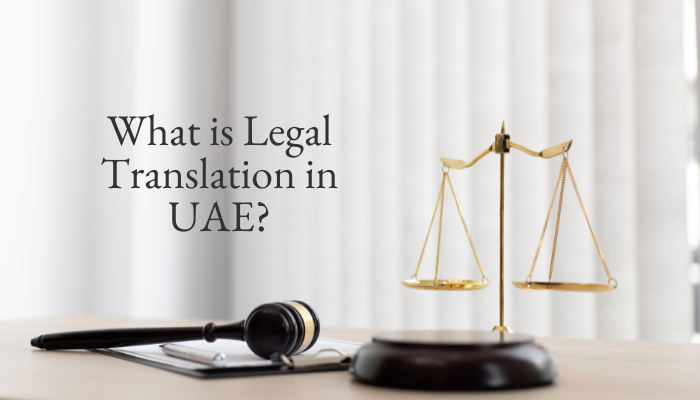Have you ever wondered What is legal translation in UAE? And why is it vital? Well, wonder no more! This article will provide a comprehensive overview of legal translation in the UAE, including a step-by-step process breakdown.
What is legal translation in UAE?
Legal translation in the UAE is a highly regulated and important field that requires skilled and knowledgeable professionals who adhere to strict guidelines and standards to produce accurate and reliable translations.
It involves translating legal documents such as contracts, agreements, court judgments, and other legal materials from one language to another.
Regulations Governing Legal Translation in the UAE
Various laws and regulations have been put in place in the UAE to regulate this field, including Federal Law No. 6 of 2012 on the Regulation of the Profession of Translation and Interpretation.
According to this law:
- Legal translators in the UAE must be certified and licensed by the Ministry of Justice.
- They must have a thorough knowledge of the source and target languages and a deep understanding of legal terminology and concepts.
- Legal translators must adhere to strict standards and guidelines to ensure their translations’ accuracy, consistency, and reliability.
- Depending on the legal institution or agency’s requirements, legal translations in the UAE may require certification or notarization.
Legal Translation Process in UAE: Step-by-Step
Legal translation is crucial in the UAE as it involves translating legal documents for official use. The UAE has strict regulations for legal translation, and non-compliance can result in legal consequences. Here’s a guide on the process of legal translation in the UAE:

Step 1: Choose a qualified legal translator.
To start the legal translation process, find a qualified legal translator authorized by the UAE Ministry of Justice.
Check their website or contact a translation agency in the UAE.
Choosing a translator proficient in both languages and with expertise in the legal field is crucial.
Step 2: Submit the documents for translation.
Once you’ve selected a qualified legal translator, submit the documents needing translation.
The documents can include:
- Legal contracts.
- Agreements.
- Court orders.
- Judgments.
Ensure the documents are complete and accurate to avoid delays in the translation process.
Step 3: Translation and editing.
Upon receiving the documents, the legal translator will start translating them into the target language, ensuring the translation conveys the original text’s meaning.
After translation, the translator will edit and proofread the document to ensure accuracy and quality.
Step 4: Notarization and attestation.
In the UAE, legal translations need notarization and attestation to be recognized as official documents.
Notarization involves the legal translator signing and stamping the translation, certifying it’s accurate.
Attestation requires authentication by the UAE Ministry of Foreign Affairs or the relevant embassy or consulate.
Step 5: Submission of the translated document.
After notarization and attestation, the final step is to submit the translated document to the relevant authority or organization, such as government agencies or courts, requiring the translated document for official use.
Online legal translation in Abu Dhabi
legal translation online Abu Dhabi services provide a convenient, fast, and reliable option for businesses and individuals who require accurate legal translations.
These services are provided by certified translators specializing in legal terminology and concepts.
By choosing a reputable service provider, clients can be assured that their translations will be handled with expertise, accuracy, and data security, ensuring the validity and enforceability of their legal documents.
In summary, legal translation in the UAE is a highly regulated and specialized field that requires certified and licensed professionals to produce accurate and reliable translations. The legal translation process involves several steps, including notarization and attestation, to ensure the translated documents are recognized as official documents. Compliance with legal translation regulations in the UAE is crucial to avoid legal consequences.








